- Home
- Thomas H. Cook
Into the Web Page 7
Into the Web Read online
Page 7
“Don’t mind, no,” Juanita said. “You seen Lila since you been back?”
“Yes, I have.”
“Seen her go down the road this morning.” “She went to Kingdom City. She should be back soon.”
“How come she went down there?”
“To identify a body,” I answered. “Clayton Spivey. He died over on Jessup Creek. They found him in the woods yesterday.”
Juanita considered this for a moment. “Guess they’ll be burying him right soon. Can’t go to the funeral though. Ain’t got the energy for it. You come to help Lila some way?”
“No, I was just on my way back down the mountain. I came up to check a few things out. For the sheriff.”
Juanita grimaced. “Don’t like that sheriff.”
“No one up here does,” I said.
“ ’Cause of his daddy,” Juanita said. “The old sheriff. ’Cause of the way he done people way back when. Always going up and down the road in that big car of his.”
I turned toward the road and saw Wallace Porterfield as I thought Juanita Her-Many-Horses must have seen him years before, huge and weighty behind the wheel of his cruiser, prowling the roads of Waylord like a ravenous wolf. “Always looking for bad things on people. You must of heard that.”
“Why would I have heard it?”
“ ’Cause he was looking for dirt on Lila’s mama.”
“When was this?”
“That summer you was coming up to see Lila. Done it all summer. All fall. Didn’t stop till winter. Guess he figured he couldn’t find nothing on her, so he just give up.” She looked at me shrewdly. “Or maybe he just figured she already had trouble enough. What with Lila going through all that trouble, you know, because of your brother. Them killings.”
The dark hedge that bordered County Road surfaced in my mind, the lights from my car cruising down it until they reached Archie’s old Ford.
“Anyway, the sheriff never asked me about Betty after that. Just let her be, didn’t come asking no more.”
“He never came again after the murders?”
“Not to me, he didn’t,” Juanita said. “Guess he got what he was after. Or figured he never would.”
Chapter Eight
It was only midday when I reached the outskirts of Kingdom City, my mind now focused on the abruptly foreshortened lives that my conversation with Juanita Her-Many-Horses had conjured up again. Archie’s, of course, but also the two people who’d been murdered on that catastrophic night, a man and woman who’d seemed old to me then, already halfway to the grave despite the fact that at the time of their deaths Horace and Lavenia Kellogg had been scarcely older than I was now.
I knew that Mrs. Kellogg had had no time to consider her death as the bullet pierced the back of her skull. Only her husband, shot repeatedly, might have glimpsed the years that were being blasted from him as the bullets struck his arm, his leg, the small of his back.
There were hours to kill before sunset, and I had no idea how to kill them. I might stroll through town, of course, chat with the few people who still recognized me from the old days. But those chance meetings had always left me with a lingering unease. Even in the warmest smiles, or couched within the most casual exchanges, I saw and heard a question that went unasked, the one about Archie: Why did he do it, Roy?
And so I didn’t go back to Kingdom City that afternoon. Instead, I revisited the old fishing spots and swimming holes to which Archie and I had so often gone.
At Calvin Pond I remembered Archie in his blond innocence, able to pluck dragonflies from the air as if they floated on it languidly, like feathers. He would hold them by the wings, turn them slowly, studying the shifting iridescent colors of their bodies in the sunlight, See how they go rainbow.
On Fulton Creek, I recalled him with a cane pole, a cork bobbing in the water. He’d always claimed that a “big one” lurked along the shadowy embankment, named the trout Cecil, and sworn that one day he’d yank it from the water, then hunker down and eat it raw, “like bobcats do.”
Late in the afternoon, I stood alone on Saddle Rock, the huge granite slab where Archie and I had made camp on the night we’d finally run away. By sundown we’d gotten no more than five miles from home. As darkness fell, we climbed onto the rock, then plopped down on the single blanket we called our “bedroll,” and prepared to wait out the night.
Our father had found us two hours later. He’d spotted Scooter on the road, the faithful dog who’d followed us from home. We’d not thought to keep Scooter at our side for the night, and so he’d wandered down the rock and was sitting quietly at its base when our father’s truck came rattling up the road. The old man had stormed up the side of the rock seconds later, Scooter loping happily at his side. He’d jerked us from our sleep and driven us like sheep back to his car, shoving us all the way, muttering curses at our backs, most of them aimed at me, since he’d known quite clearly that I was the one who’d plotted the escape, then dragged Archie, innocent and foolish, into my scheme, Ten years old, where the hell you think you was going, Roy? And with Archie, who ain’t got sense enough to say no to you.
At home he’d sent us, hungry and tired, to our room, where we’d spent the night speculating on the punishment that was sure to come, the long days of mockery that were in store for us, my father’s disdain poured like an acid over our heads, and compared to which we would have preferred fifty lashes from his belt.
But as I stood at the place where Archie and I had huddled together so long ago, I didn’t dwell on any of that. Instead, I recalled the shooting star we’d seen that night, Archie’s eyes filled with childlike awe, tracing its long fall across the nightbound sky.
He would not look so lost in wonder again until Gloria appeared many years later, offering Archie a love that looked past his awkwardness, his shyness, the slow movement of his mind, the fact that he had nothing to offer in return but his own guileless heart. I could still recall his determination to keep her. I’ll do anything, Roy. Anything.
We’d been standing in the darkness outside our house when he said that, a frigid wind in the pine, Lila a few yards away, wrapped in a thick wool coat, her red hair flowing over her shoulders as she leaned against my old Chevy. She’d had only one question when I came back to the car.
Roy, what’s he going to do?
My answer, once given, had never changed.
I don’t know.
But he’s so …?
Get in the car, Lila.
You can’t just leave him like this, Roy.
Get in the car.
But …
Let’s go.
The school we’d attended as boys was a small redbrick building, a WPA project from start to finish, solid but uninspired. To Archie it had been a prison, a place he hated and in which he was often humiliated. But school provided sweet relief to me, a refuge where I’d sit alone in the library, lose myself in a book, the lone “intellectual,” as I sometimes thought of myself, among boys who regarded school as entirely corrosive, reading an activity that turned them into sissies while sports turned them into men.
I’d left the playing fields to Archie, hoping that he might do on the ball field what he couldn’t do in the classroom, watching him try his best, give it his all, in game after game. For most of those years I watched alone, but during that final year Gloria sometimes sat beside me, clapping wildly at Archie’s smallest achievements, a base hit or a fly to center field that he actually managed to catch.
A group of children was playing in that same field behind the school that night, and since my only other option was to return to the steamy atmosphere of my father’s house, I decided to watch the game for a while.
The bleachers were only half filled with spectators, most of them young parents eager to watch their kids take a turn at bat. The children on the field were dressed in crisp white uniforms and dark blue caps, far different from the boys who’d played years before. We’d had no uniforms in those days, no elaborate equipment.
Watching the parents cheer and clap, I remembered that my father had rarely come to watch Archie play. Exhausted from working on a road crew or hauling pulp-wood, he’d usually flopped onto the sofa, then fallen into a fitful, muttering sleep.
And yet there were times when he’d actually tried to fulfill some part of his fatherhood. He’d taught us both to drive, though impatiently, barking harshly each time we swerved into the dirt siding. He’d tried to teach us to fly-fish as well, grumbling at how poorly we did it but persisting in the effort until our incompetence finally overwhelmed him and he gave up, yanking the poles from our hands and stomping off toward the car.
And sometimes he would suddenly show up at a night game to watch Archie play, though his eyes seemed only distantly to follow the flight of the ball or a boy’s frantic run around the bases. But unlike the other fathers, he never leapt to his feet when Archie did something right. He seemed simply to appear at random, watch the game in silence, leave without speaking either to Archie or to me.
I’d thought then that it had been an effort, however halting, to play the father. But looking back now, remembering the few times my father had come to watch Archie play, I realized that his attendance had not actually been random at all, that he’d come only to particular games, the ones in which Archie’s team had been arrayed against the team from Waylord.
The Waylord team.
A scruffy crew of impoverished boys, the sons of miners and raw subsistence farmers, the riffraff of the hills, dressed in hand-me-downs, with dirty caps and ripped shirts, teeth blackened by poor care, poor diet, some whose skin even bore the glossy patina of malnutrition. They were a spirited group nonetheless, and it was said by valley boys that in the Waylord fields the bases were made of feed sacks filled with sand, and that the boys themselves played without gloves, and sometimes with hard round stones rather than balls, stones they batted into the air at terrific speed, using long lead pipes. Compared to them, the Kingdom City boys felt themselves curiously soft and pampered, blessed never to have known all that made the boys of Waylord hard and tough and filled with an oddly haunting pride, theirs a poverty so deep, it made our spare circumstances appear luxurious in comparison, and filled our hearts with awe.
That evening, as I sat in the same bleachers where my father had sometimes lingered in sullen silence, eyes fixed on the lighted field, I tried to imagine why he had come to see the Waylord team, tried to think through the baffling loyalty he’d shown toward the very people he’d seemed in all other ways to despise, often mouthing horrendous oaths against them, how hopeless they were, how weak and stupid, how much by their own hands they did damage to themselves.
What call had occasionally roused him from the orange sofa, despite his weariness after a long workday and sent him down to the playing field in the sweltering summer darkness, to sit in the hazy light, apart from the other parents, as if refusing to be drawn into life’s domestic circle?
I knew that it was not a question I would ever ask him, nor one he would answer even if I did. When he died, any hope that I might ever learn how he’d come to be the man he was would die too. And yet the fact that time was running out on these mysteries bothered me very little. Long ago I had come to accept that they were beyond solution, my father a closed door where the sign had always been posted, Keep Out.
Chapter Nine
He was sitting on the front porch when I got to the house later that night, leaning back in a rickety chair, his bony feet propped up on an overturned tin bucket. He nodded coolly as I got out of the car but waited until I reached the porch to speak.
“Why don’t you go on back to California, Roy. I been thinking about it all day, and the way I see it, there’s just no need for you to hang around here. I’m doing fine.”
Until earlier that afternoon I might have taken my father up on his offer, packed my things and driven home. But now I saw Lila in the jail cell, still like no one else I’d ever met, with nothing at all diminished from the girl I’d once loved. I felt compelled to see her through the current trouble, at least as far as keeping an eye on Lonnie Porterfield was concerned. I needed to make sure he did not renege on the promise he’d made me to leave her alone.
“No, I’m going to hang around for a while, Dad,” I told him. “Does it bother you that much, having me around?”
“Suit yourself,” he said absently, then added, “Hey, you didn’t happen to buy some cigarettes while you was out, did you?”
I sat down on the top step. “I’ll get you some in the morning.”
“In the morning, right.”
His tone instantly rankled me with its suggestion that I knew nothing of what a man needed to make it through the night.
“I’m not going back into town tonight, if that’s what you’re getting at,” I told him. “Not for cigarettes or anything else.”
“Who asked you to, Roy? I can do without ’em. Besides, if I wanted cigarettes, I’d get ’em myself.”
“I wouldn’t advise it.”
Now it was my father’s turn to bristle. “‘I wouldn’t advise it,’” he repeated prissily. “That all you learned in college, Roy? To talk that way. Like old Miss Danforth, that damn old bitch I had. ’A kid is a goat,’ she used to say. ‘It ain’t children.’ Always strutting around. With her nose in the air like us kids stunk up the schoolhouse. ‘Can’t’ means ‘ain’t able to,’ she used to say, ‘may’ means ‘could I do it if you let me.’ Damn old bitch. Thought she was better than us. Come up from Kingdom City to teach us poor, hopeless little bastards how to talk right. You remind me of her.”
I started to reply, but he waved me into silence.
“But hell, it wouldn’t have mattered how that damn old bitch talked to me. I wouldn’t have stayed in school nohow. Didn’t have no use for it. Couldn’t see how it would do me no good.”
To break the silence that fell between us, I told him, “I stopped by the old ball field this evening. Holbrook was playing Kingdom City.”
“Be a wonder if either one of them got a single run. Squirts, far as I can see in the paper.”
“When was the last time you went to a game?”
He leaned forward and spat into the yard. “Years.”
“You came a few times back when I was a kid,” I reminded him. “To see Archie play.”
“Archie wasn’t bad,” my father said. “Hit fairly good.” A tiny smile flickered. “You ’member that night he hit that homer against Waylord?”
I was surprised that my father remembered it, although I recalled vividly how the ball had sailed upward and upward, made its high, graceful arc over center field, brought the crowd roaring to its feet as my brother rounded the bases.
“Yeah, I do.”
I’d glanced up into the bleachers as Archie loped toward second base, expecting to see my father where he’d been sitting minutes before, perhaps even thinking that he might be on his feet like everyone else, cheering madly, clapping his hands.
But the spot where he’d sat was vacant.
“That was a good night for Archie, I guess,” my father said in a tone that was unusual for him, almost wistful.
My eyes had scanned the bleachers, desperate to find my father, to reassure myself that he’d seen the ball rise, was at that instant watching as Archie rounded the bases slowly, gracefully, soaking up the crowd’s wild praise.
“Never hit another one, Archie didn’t,” my father added now. “Never hit another homer his whole damnv life.”
I’d looked back toward the field in time to see Archie touch third base, by then merely prancing along, his own eyes searching the bleachers for the spot where he’d seen our father moments before, empty now, hollow, my brother’s triumphant smile fading slowly, until, at home plate, it had vanished altogether.
My father casually scratched the gray stubble on the side of his face. “Just lost interest in playing ball, I guess. Archie did.”
It was only then, after Archie had scored, that I’d caught sight again of my
father. He’d left the bleachers and was now standing beside a woman, full-figured in a satiny blue dress, blond hair bobbed, glancing over her shoulder to reveal glistening red lips, a blush at her cheek, the younger version of an older face I’d not seen again until years later, after I’d found my way up to Waylord, where she had greeted me at the door, Well, now, you must be Roy Slater. Lila’s not quite ready.
“Betty Cutler was at that game,” I said.
“That right?” My father seemed hardly to recognize the name.
“You don’t remember talking to her?”
“Why would I remember that?”
“Last night you mentioned that you knew each other. Betty-and-Deidre, remember?”
“I knew a lot of people up in Waylord way back when.”
“I just thought that—”
“Talked to a lot of people at them games too.”
“Well, actually, you didn’t,” I said. “You sat off by yourself. I don’t remember ever seeing you talk to anybody but—”
“What difference does it make who I talked to at them games?”
“It’s just an observation, Dad.”
A brief silence, then he said, “You see Lila today?”
“Yes.”
“What’d she have to say?”
“Nothing much.”
He shrugged. “If you don’t want to talk about it, just say so.”
“We talked about the old days,” I said. “High school. She didn’t have much to say.”
But my father no longer seemed interested in my conversation with Lila. His mind was now focused on a gloomier terrain. “Death clams people up. Did that to your mother.”
He was talking about Archie, of course, the way his death had sent my mother into the murky bedroom for the rest of her days. But I wondered if he were not also talking about others who’d suffered the same devastation, the process by which a child’s death closes around a parent’s world, becomes the dark prism through which all life passes after that.

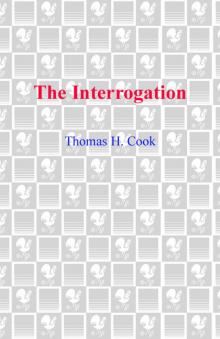 The Interrogation
The Interrogation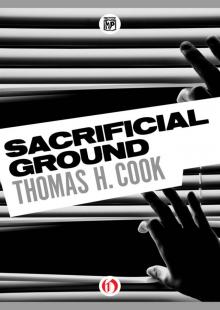 Sacrificial Ground
Sacrificial Ground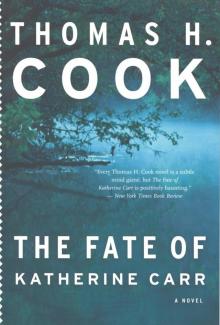 The Fate of Katherine Carr
The Fate of Katherine Carr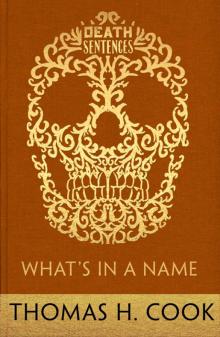 What's In A Name
What's In A Name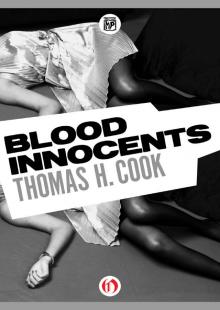 Blood Innocents
Blood Innocents Peril
Peril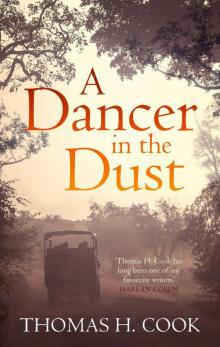 A Dancer In the Dust
A Dancer In the Dust Breakheart Hill
Breakheart Hill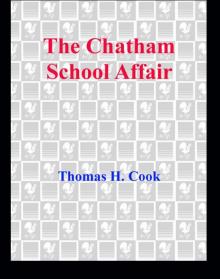 The Chatham School Affair
The Chatham School Affair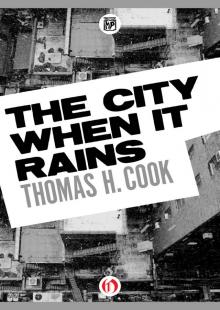 The City When It Rains
The City When It Rains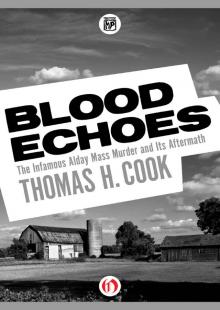 Blood Echoes
Blood Echoes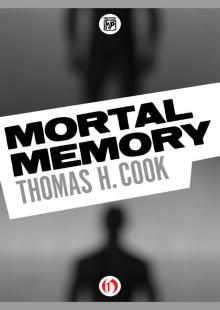 Mortal Memory
Mortal Memory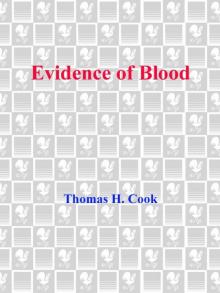 Evidence of Blood
Evidence of Blood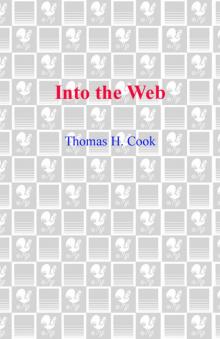 Into the Web
Into the Web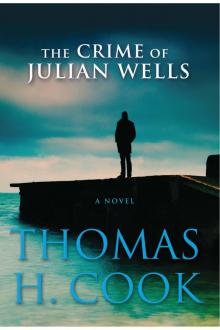 The Crime of Julian Wells
The Crime of Julian Wells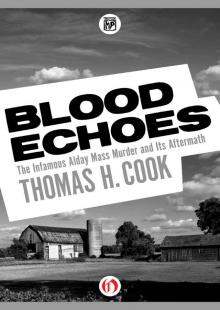 Blood Echoes: The Infamous Alday Mass Murder and Its Aftermath
Blood Echoes: The Infamous Alday Mass Murder and Its Aftermath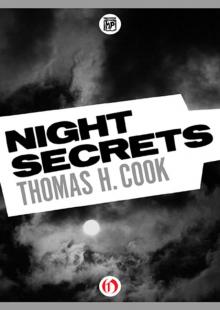 Night Secrets
Night Secrets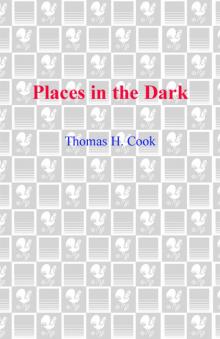 Places in the Dark
Places in the Dark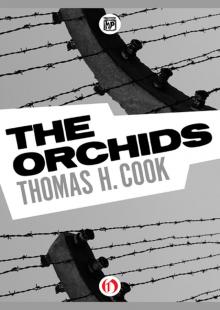 The Orchids
The Orchids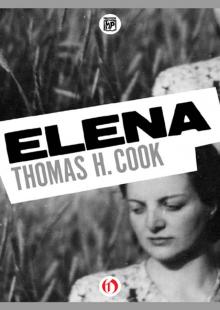 Elena
Elena Streets of Fire
Streets of Fire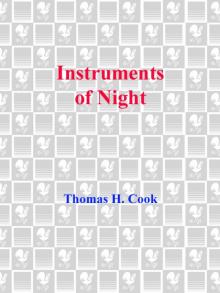 Instruments of Night
Instruments of Night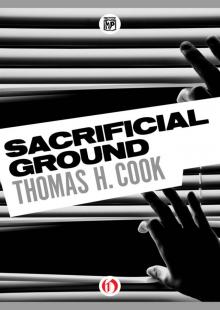 Sacrificial Ground fc-1
Sacrificial Ground fc-1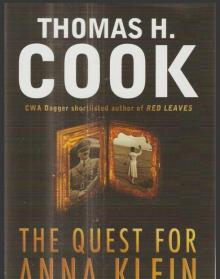 The Quest for Anna Klein
The Quest for Anna Klein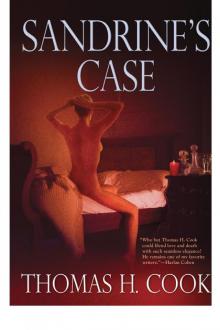 Sandrine's Case
Sandrine's Case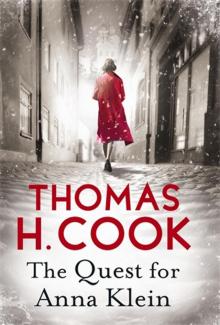 Quest for Anna Klein, The
Quest for Anna Klein, The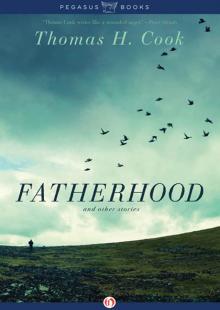 Fatherhood
Fatherhood Flesh and Blood
Flesh and Blood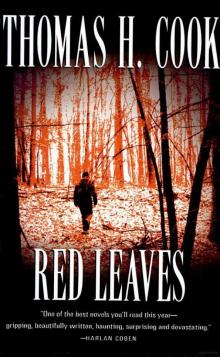 Red Leaves
Red Leaves